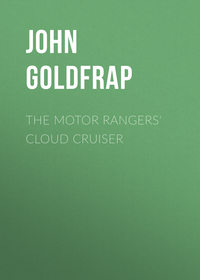 полная версия
полная версияThe Bungalow Boys in the Great Northwest

The Bungalow Boys in the Great Northwest
CHAPTER I.
IN THE VALLEY
Turning over his morning mail, which Jared Fogg had just brought into the little Maine valley, Mr. Chisholm Dacre, the Bungalow Boys’ uncle, came across a letter that caused him to pucker up his lips and emit an astonished whistle through his crisp, gray beard. A perplexed look showed on his sun-burned face. Turning back to the first page, he began to read the closely written epistle over once more.
Evidently there was something in it that caused Mr. Dacre considerable astonishment. His reading of the missive was not quite completed, however, when the sudden sound of fresh, young voices caused him to glance upward.
Skimming across the deep little lake stretched in front of the bungalow came a green canoe. It contained two occupants, a pair of bright-faced lads, blue-eyed and wavy-haired. Their likeness left no doubt that they were brothers. In khaki trousers and canoeing caps, with the sleeves of their gray flannel shirts rolled up above the elbow exposing the tan of healthy muscular flesh, they were as likely a looking couple of lads as you would have run across in a muster-roll of the vigorous, clean-limbed youth of America. Regular out-of-door chaps, they. You couldn’t have helped taking an immediate liking to Tom Dacre and his young brother Jack if you had stood beside Mr. Dacre that bright morning in early summer and watched the lightly fashioned craft skimming across the water, its flashing paddles wielded by the aforesaid lusty young arms.
“Well, who would think to look at those two lads that they had but recently undergone such an experience as being marooned in the Tropics?” murmured Mr. Dacre to himself, as he watched his two nephews draw nearer.
There was a fond and proud light in his eyes as they dwelt on his sturdy young relatives. In his mind he ran over once more the stirring incidents in which they had all three participated in the Bahamas, and which were fully related in a previous volume of this series – “The Bungalow Boys Marooned in the Tropics.”
Our old readers will be able to recall, too, the bungalow, and the lake, and the country surrounding them. These environments formed the scene of the first volume of this series – “The Bungalow Boys.”
How different the little Maine lake looked now to its appearance the last time we saw it. Then it was swollen, angry, and discolored by the tumultuous waters of a cloudburst. At the water gate leading to the old lumber flume stood Tom Dacre and Sam Hartley, horror on their faces, while out on the lake, clinging to a capsized canoe, were two figures – those of a man and a boy. Suddenly the man raises his hand, and the next instant a cowardly blow has left him the sole occupant of the drifting canoe. Swept on by the current, the lad, his features distorted by fear, is being sucked into the angry waters of the flume, when a figure leaps into the water to the rescue, and —
But we are wandering from the present aspect of things. All that happened a good while ago, when the Bungalow Boys were having their troubles with the “Trubblers,” as old Jasper used to call them. At that time the little valley, not far from the north branch of the Penobscot River, was, as we know, tenanted by a desperate gang of rascals bent on ousting the lads from their strange legacy.
Everything is very different in the valley now. The old lumber camp up the creek – in the waters of which Jumbo, the big trout, used to lurk – has been painted and carpentered, and carpeted and furnished, till you wouldn’t know it for the same place. Mrs. Sambo Bijur, a worthy widow, is conducting a boarding house there to the huge disgust of the boys. Somehow, exciting – perilously so – as the old days often were, they have several times caught themselves wishing they were back again.
“It’s getting awfully tame,” were Tom’s words only the day before, when he had finished fishing the youngest of the Soopendyke family – of New York – out of the lake in which the said youngest member of the Soopendykes had been bent on drowning himself, or so it seemed. His distracted mother had rushed up and down on the shore the while.
“Like an old biddy that has discovered one of her chickens to be a duck,” chuckled Jack, in relating the story.
“And she kissed me,” chimed in Tom, with intense disgust, “and said I was a real nice boy, and if I’d come up to the boarding house some day she’d let me have a saucer of ice cream.”
Mr. Dacre had laughed heartily at this narration.
“Too old for ice cream since we defeated the wiles of Messrs. Walstein, Dampier and Co. – eh, Tom?” he exclaimed, leaning back in his big chair on the bungalow porch and laughing till the tears ran down his weather-beaten cheeks.
“It – it isn’t that, sir,” Jack had put in, “but a fellow – well, he objects to being slobbered over.”
“Better than being shot at, though, isn’t it, lads?” inquired Mr. Dacre, his gray eyes holding a merry twinkle.
“Um – well,” rejoined Tom, with a judicial air, “you know, Uncle, we’ve seen so much more exciting times in this old valley that it seems strange and unnatural to be overrun with Widow Bijur’s boarders. If it isn’t one of the little Soopendykes that’s in trouble, it’s Professor Dalhousie Dingle, with that inquiring child of his. I never saw such a child. Always asking questions. The other day the professor caught a bug and proceeded to stick a pin through it as he always does.
“‘Pa,’ asked Young Dingle, ‘does that hurt the bug?’
“‘I suppose so, my son,’ answered the professor.
“‘Then the bug doesn’t like it?’
“‘I guess not.’
“‘Will the bug die?’
“‘Undoubtedly, my boy.’
“‘Why do you kill bugs, papa?’
“‘For the purposes of science, my boy,’ answered the professor.
“‘Pa?’
“‘Yes, Douglas.’
“‘What is science?’
“‘It’s – it’s – ah, well, the art of explaining things, my boy.’
“‘Does it tell everything?’
“‘Yes, my boy.’
“‘Then what killed the Dead Sea, Pa?’”
Up to this point Mr. Dacre had listened gravely enough, but here he had to burst into a roar of laughter. When his merriment had subsided, he wished to know how the professor had dealt with such a “stumper.”
“What did he say to that, Tom?”
“Well,” laughed Tom, “I guess it was too much for him, for I heard him call Mrs. Bijur and ask her to give the lad a cookie. He said the boy’s brain was so large it was eating up his mind.”
This conversation is related so that the reader may form some idea of how the valley has changed from the last time we participated in the Bungalow Boys’ adventures therein. Mrs. Bijur had other boarders, but Mrs. Soopendyke, with her numerous progeny, and Professor Dingle and his inquiring son, were the most striking types. But while we have been relating something of the Bungalow Boys’ neighbors, they have run their canoe up to the wharf, made fast the painter, and, with paddles over their shoulders – for fear of predatory Soopendykes – made their way up to the porch.
“Out early to-day, Tom,” was Mr. Dacre’s greeting.
“Yes, we thought we’d see if we couldn’t succeed in getting a bass or two before the sun got too hot,” rejoined Tom.
“And you did?”
For answer Tom held up a string of silvery beauties.
“Not bad for two hours’ work,” laughed Jack, leaning his rod against the porch.
“No, indeed, and more especially as Jasper has just informed me that we are almost out of meat. I was thinking of taking a stroll up to Mrs. Bijur’s after a while, to see if I could borrow some. Do you boys want to go?”
Tom threw up his hands and burst into a laugh in which Jack joined.
“Might as well,” they chuckled. “At all events, there’s always something amusing going on up there. By the way, the bugologist” (Tom’s name for the dignified Professor Dingle) “is off on a new tack now.”
“Is that so?” inquired Mr. Dacre interestedly, “and what is that, pray?”
“Why he’s got some wonderful notion about a new explosive. He’s been experimenting with it for some days now.”
“A new explosive!” echoed Mr. Dacre, in an amazed tone; “well, what does he expect to do with that?”
“Sell it to the government, I guess,” chuckled Tom. “I’ll bet, though, it won’t be as effective as that electric juice we turned into the handrail of the dear old Omoo off Don Lopez’s island.”
“I think it would have to be pretty powerful to equal the effects of that, indeed,” laughed Mr. Dacre, rising and thrusting the letter which had interested him so much into a side pocket of his loose linen jacket. He reached for his hat.
“Well, let’s be starting before it gets really warm. By the way, boys, as we go along I’ve something to talk to you about. But first I want to ask you a question. I want you to answer it honestly. Aren’t you getting a bit tired of your bungalow?”
Tom and Jack exchanged glances. As we know, the bungalow and the estate surrounding it, was their “legacy” from their uncle, and not for worlds would they have admitted that they were getting a little tired of the pleasant monotony of their lives there. But being ingenuous lads they had not been able to conceal it – as has been hinted, in fact.
Tom and Jack exchanged glances. As we know, the bungalow and the estate surrounding it, was their “legacy” from their uncle, and not for worlds would they have admitted that they were getting a little tired of the pleasant monotony of their lives there. But being ingenuous lads they had not been able to conceal it – as has been hinted, in fact.
“Come,” said Mr. Dacre, a quizzical smile playing about the corners of his firm, yet kind, mouth. “Speak out; haven’t you exchanged views about the monotony of perfect plain sailing, or something of that sort?”
“Why, uncle, you must be a wizard!” exclaimed Tom. “Have you overheard us?”
Then both lads burst into a laugh, seeing how they had betrayed themselves.
“There, there,” chuckled Mr. Dacre, “you’d never do for diplomats – too honest,” he murmured, half to himself; “but, as Jasper would say – being as how you have given yourselves away, I have something to propose to you.”
“Hurray!” shouted Jack, capering about, “a trip? I’ll bet the hole out of a doughnut it’s a trip!”
“And you would win that bet,” cried Mr. Dacre, drawing out the letter from his pocket. “In the mail to-day there came a letter from a man from whom I have not heard for some time – a good many years, in fact.”
A cloud passed over Mr. Dacre’s face. They could see that for a moment he was back in the old painful past. But it passed as rapidly as a shadow on the surface of the rippling lake.
“My friend has a ranch in Washington State,” he went on, while the boys, with parted lips and sparkling eyes, fairly drank in his words. “It appears that he read in the papers about our adventures in the tropics. This letter is the result. He informs me that if I am anxious to make an investment with a part of the treasure of the lost galleon, that no better opportunity offers than the timber and fruit country of Washington. He says that he imagines that I must be anxious for rest anyhow, and, to make a long story short, he extends to me and to my two celebrated nephews” – the boys blushed – “a hearty invitation to visit him, renew old friendship, and take a look at the country. What do you say, boys – shall we go?”
Tom drew a long breath.
“Say, ever since I read that book on the Great Northwest of our country I’ve longed to get out there. Jack and I have talked it over many a time.”
Here Jack nodded vigorously.
“Will we go, uncle? Well,” Tom paused as he cast about for a fitting phrase, “well,” he burst out, “if we don’t, your Bungalow Boys will be Grumble-oh! boys.”
“Then I will write him this afternoon that we will come,” said Mr. Dacre soberly, though it was easy to see that he was almost as pleased as the lads at their decision. As for the boys, they joined in a wild half-war-dance, half-waltz that didn’t end till Jack was almost waltzed into the lake – not that in his frame of mind he would have cared.
At this stage of the proceedings an inky-black countenance, crowned with a tightly curling crop of grayish wool, projected from a rear door of the bungalow. It was Jasper – former servant of Dr. Parsons, but now attached to the Bungalow Boys’ uncle.
“Fo’ de lan’s sake!” he cried, throwing up his hands in consternation. “Dem boys done be actin’ up lak dey was two crazy pertatur bugs. Misto Dacon” (Dacre was beyond Jasper), “Mr. Dacon, sah, does I git dat meat o’ does we dine on flap jacks an’ bacum?”
“You get the meat,” laughed Mr. Dacre, regarding with intense amusement the tragic mien of his colored servitor. “Come, boys, give Jasper your fish – just to ease his mind – and insure the safety of Mrs. Bijur’s chickens – and then let’s hurry on our errand. There’s a lot to do before we start for The Great Northwest.”
“The great northwest!” echoed Tom, picking up the now despised string of bass. “If there are any two finer words in the geographies, I’ve never heard them.”
CHAPTER II.
A “BLOW-UP.”
All the way to Mrs. Bijur’s – along the well-remembered trail, with its alder clumps fringing the crystal-clear Sawmill Creek and the big pool where of yore lurked Jumbo, and into which Tom had taken a header on one memorable occasion – there was naturally only one topic of conversation, the coming trip, of course. By the time they reached the former lumber camp, and the place which had more recently been the headquarters of the Trulliber gang, the boys had crossed and recrossed the continent at least half a dozen times, and the geography and animal and vegetable history of the State of Washington been thoroughly discussed. The trim buildings, now painted white, with red roofs and green shutters and doors, presented a violent contrast to the ramshackle collection of structures in which the Trullibers had squatted.
The barn in which Tom lay a prisoner, while in the next room he had heard Dan Dark and the others plotting, was now painted a vivid red, and a neat tin roof glittered above its contents of spicy-smelling hay and well-fed, sleek cows and horses. Josiah Bijur had left his widow a snug little fortune and, with true Maine thrift, she had spent it to the best advantage. Already she had more applications for boarders than her place would hold. If she could have persuaded the boys she would have liked to rent their bungalow for the overflow. But the fancy rent she offered had no allurement for them. Their share of the treasure of the galleon had made them two very independent lads.
Hamish Boggs, Mrs. Bijur’s hired man, was clambering off a load of hay as the party from the bungalow came in sight. He had just hauled it in from the mountain meadow, not far, by the way, from the foot of the cliff where Tom took that memorable slide after his imprisonment in the cave, which came near proving his grave.
Going to the rear of the wagon, which was halted on the steep grade in front of the house, he placed two big stones under each of the rear wheels.
“Don’t want the wagon to go rolling down the hill, eh, Hamish?” said Mr. Dacre, as they came up.
“No, sir,” responded Hamish emphatically; “there’s a deep pool in the creek at the bottom of this grade and if ther old wagin ever started a-runnin’ daown it – wall, by chowder, she’d take er bath whether she needed one er not.”
So saying, he proceeded to unhitch the horses and lead them toward the barn.
“Why don’t you drag the load in under the mow?” asked Tom, not quite seeing the object of leaving the load stalled in front of the house.
“Wall, yer see,” drawled Hamish, “thet mow’s got quite a sight of grass inter it naow. By chowder, ef I tried ter put this load in on top, it might raise the roof ofen it, so I’m gon’ ter shift it back a bit.”
At this juncture Mrs. Bijur appeared – a thin, sharp-featured woman in a blue calico dress, with a sunbonnet to match.
“Wall, land o’ goodness, ef it ain’t Mister Dacre,” she cried. “Wall, dear suz, what brings you here? Hamish, yer better ’tend to thet sick caow afore you put in yer hay. Do it right arter you’ve got them horses put up.”
“And leave ther hay out thar, mum?” asked Hamish.
“Yes, of course. Nobody ain’t goin’ ter steal it, be they? Go on with yer. Mr. Dacre, come in. Hev a glass of buttermilk. Dear suz! if I ain’t run off my mortal leags, an’ – oh, you air a sniffin’, too, be yer?”
She broke off her torrent of talk as she noticed Mr. Dacre sniffing with a critical nose. The atmosphere was, in fact, impregnated with a very queer odor.
“Guess some senile egg must have gone off and died round here,” said Tom, with a snicker to Jack.
“It’s that perfusser,” explained Mrs. Bijur. “I tole him that he’d hev ter stop experimentin’ ef it was goin’ ter smell us out o’ house an’ home this er way. Awful, ain’t it?”
“Well, it is rather strong,” admitted Mr. Dacre, as they took seats in the stuffy parlor, with its wax fruit under their glass covers, the imitation lace tidies on the backs of the stiff chairs, and the noisy, eight-day clock ticking away like a trip-hammer.
“What ever is the professor doing?” he inquired.
“’Sperimentin’,” sniffed Mrs. Bijur, smoothing out her apron.
“Must be experimenting with cold-storage eggs,” put in Tom.
“No,” rejoined Mrs. Bijur gravely, “it’s some sort of a ’splosive. I tell you, Mister Dacre, I’m terrible skeered. Reely I be. S’pose thet stuff ’ud go off? We’d all be blown up in our beds.”
“Unless you happened to be awake, ma’am,” answered Mr. Dacre.
“Ah, but he don’t ’speriment only at night,” was the rejoinder. “He’s off all day huntin’ bugs and nasty crawly things. It’s only at night he works at it, an’ I tell yer, I’ve got my hands full with them Soopendyke children. They’re allers a-tryin’ to git inter the perfusser’s laboratory – he calls it. If they ever did, dear knows what ’ud happen. The perfusser says that ef any one who didn’t understand that stuff was to meddle with it, it might blow up.”
“Good gracious!” exclaimed Mr. Dacre, with mock anxiety. “I hope the young Soopendykes are all safely accounted for.”
“I dunno. There’s no telling whar them young varmints will git ter,” was the reply. “They’re every place all ter oncet, and no place long tergither. Tother day I cotched one tryin’ ter git inter the laboratory. Crawlin’ over ther roof, he was, and goin’ ter drop inter ther window by a water pipe. Seems ter me thet they are just achin’ ter blow themselves up, and – Good land! Look at ’em now!”
The widow rushed to the window and shook her fist at four young Soopendykes who were disporting themselves in the hay wagon, leaping about among the fragrant stuff, and pitching it at one another, to the great detriment of Hamish’s neat load.
“Where is Mrs. Soopendyke?” inquired Mr. Dacre, as the widow finished shooing – or imagined she had done so – the invading youngsters from their play.
“Lyin’ down with a headache,” was the rejoinder. “Poor woman, them young ’uns be a handful, an’ no mistake.”
As Mrs. Bijur seemed inclined to enlarge on her troubles, Mr. Dacre lost no time, as soon as he could do so, in explaining his errand.
“Meat!” exclaimed Mrs. Bijur. “Good land, go daown cellar and help yourself. The boys can give me some of those nice fresh fish in trade some time. No, you won’t pay me, Mr. Dacre. Dear suz, ain’t we neighbors, and – Land o’ Gosh-en!”
The last words came from the good lady in a perfect shriek. And well they might, for her speech had been interrupted by a heavy sound that shook the house to its foundations.
Bo-o-o-o-m!
“Good heavens!” cried Mr. Dacre, rushing out of the door, followed by the boys. “An explosion!”
“That thar dratted explosive soup of the perfusser’s has gone off at last!” shrieked the widow, following them in most undignified haste. As they emerged from the house, a shrill cry rang out:
“Ma-ma! Oh, ma-ma!”
“Just as I thought, it’s one of them Soopendykes!” cried Mrs. Bijur. “Good land! Look at that!”
She indicated the extension of the house, a low one-storied structure, jutting out from the rear. It was in this that the professor had set up his “laboratory,” as Mrs. Bijur called it. Her exclamation was justified.
A large hole, some three feet six inches in diameter, gaped in the once orderly tin roof. Through the aperture thus disclosed, yellow smoke was pouring in a malodorous cloud, while, on a refuse pile not far away, the eldest Soopendyke, Van Peyster, aged twelve, was picking himself up with an injured expression. His Fauntleroy suit, with clean lace cuffs and collar – fresh that morning – was in blackened shreds. His long yellow curls were singed to a dismal resemblance to their former ideal of mother’s beauty. Master Van Peyster Soopendyke was indeed a melancholy object, but he seemed unhurt, as he advanced toward them with howls of:
“I didn’t mean ter! I didn’t mean ter!”
“You young catamount!” shrilled the widow. “What in the name of time hev yer bin a-doin’ of?”
“Boo-hoo! I jes’ was foolin’ with that stuff of the professor’s an’ it went off!” howled the Soopendyke youngster, while the boys likewise exploded into shouts of laughter. In the meantime, Mr. Dacre had burst in the locked door and discovered that, beyond wrecking the laboratory, the explosion had not done much harm. He had just finished his examination when Mrs. Soopendyke, her hair falling in disorder and her ample form hastily dressed, came rushing out.
“My boy! My boy!” she cried, in agonized tones. “Van Peyster, my darling, where are you hurt; are you – ”
The good lady had proceeded as far as this when her eyes fell on the smoke-blackened, ragged object, which had been blown through the roof by the force of the explosion. Luckily, his having landed on the rubbish pile had saved his limbs. But Master Soopendyke, as has been said, was an alarming object for a fond parent’s eye to light upon.
“Oh, Van Peyster!” screamed his mother. “Great heavens – ”
“Aw, keep still, maw. I ain’t hurt,” announced the dutiful son.
“Oh, thank heaven for that! Come to my arms, my darling! My joy! Come – ”
Mrs. Soopendyke was proceeding to hurl herself upon her offspring, who was about to elude her, when from the front of the house came an appalling shriek.
“It’s Courtney!” screamed out the unhappy lady. “Oh, merciful heavens! What is happening now?”
CHAPTER III.
AN INVOLUNTARY HAY-RIDE
Louder and louder came the shrieks and cries, and the party, all of them considerably alarmed, rushed around to the front of the house to perceive what this new uproar might mean. They beheld a sight that made Mrs. Soopendyke begin to cry out in real earnest.
One of her family had, in a playful mood, removed the stones which held Hamish’s hay wagon stationary on the steep grade. As a natural result, it began to slide backward down the hill. But what had thrilled the good lady with horror, and the others with not a little alarm, was the sight of three other young Soopendykes, including the baby, on the top of the load. It was from them and from Master Courtney Soopendyke, who perceived too late the mischief he had done by removing the stones, that the ear-piercing yells proceeded.
“Oh, save them! Oh, save my bee-yoot-i-ful children!” screamed Mrs. Soopendyke, wringing her hands, as the ponderous wagon, with its screaming load of children, began to glide off more and more rapidly.
“Great Scott!” shouted Mr. Dacre. “That deep hole in the creek is at the bottom of the hill!”
“Oh! Oh! Oh!” shrilled Mrs. Soopendyke, and fainted just in time to fall into the arms of Hamish, who came running round from the barn.
“Help! Fire! Murder! Send for the fire department!” screamed Mrs. Bijur, with some confusion of ideas.
In the midst of this pandemonium Tom and Jack and their uncle alone kept cool heads. Before the wagon had proceeded very far, the two Bungalow Boys were off after it, covering the ground in big leaps. But fast as they went, the wagon rumbled down the grade – which grew steeper as it neared the creek – just a little faster seemingly – than they did. Its tongue stuck straight out in front like the bowsprit of a vessel. It was for this point that both lads were aiming. Tom had a plan in his mind to avert the catastrophe that seemed almost inevitable.









